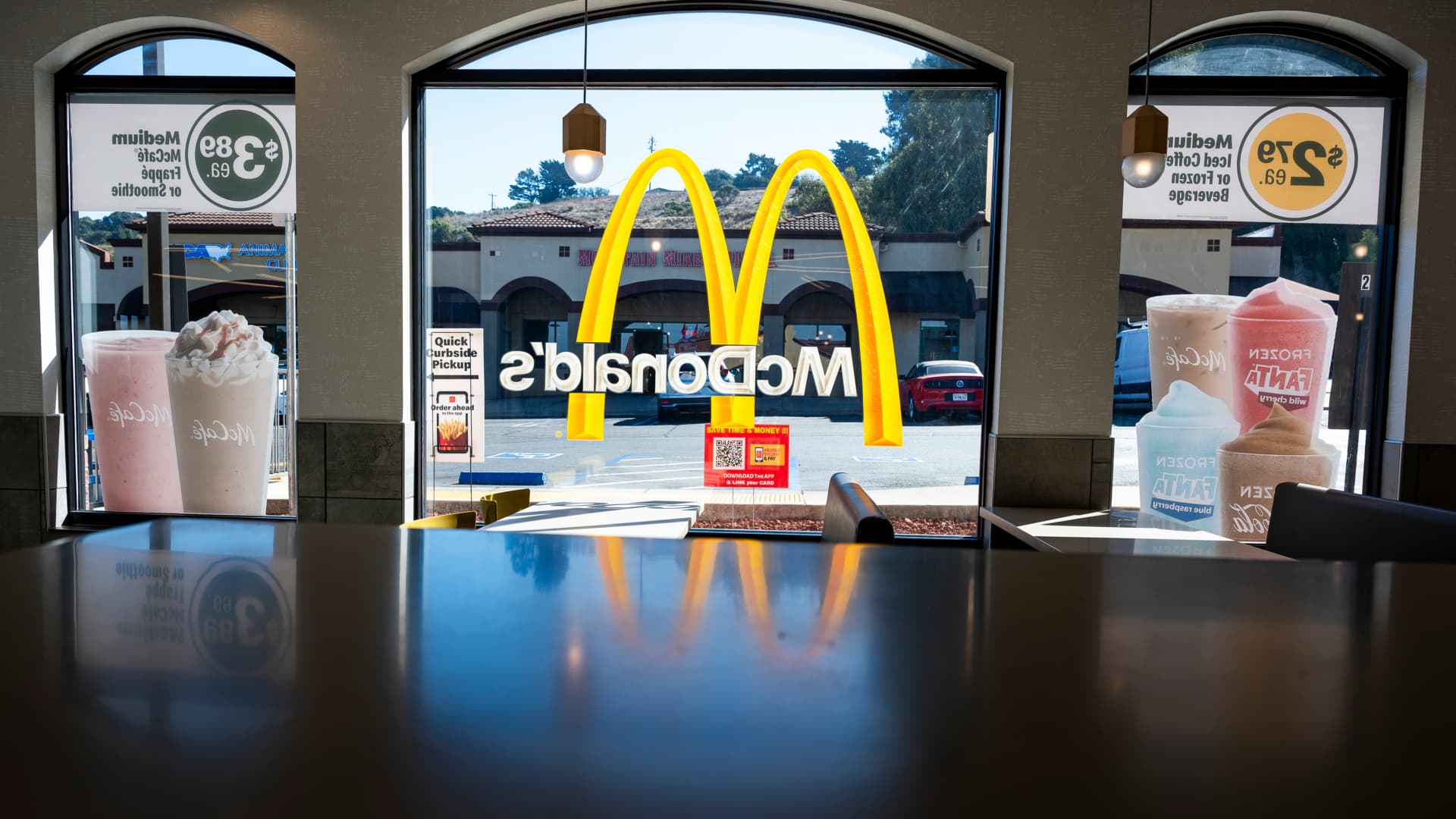McDonald’s on Tuesday reported quarterly earnings and revenue that beat analysts’ expectations as its U.S. restaurants reversed last quarter’s same-store sales decline.
However, investors are worried about another dent to U.S. sales fueled by a recent E. coli outbreak across 13 states linked to McDonald’s Quarter Pounder burgers. As of Friday, 75 health cases have been tied to the outbreak, including one death of an older adult.
Daily sales and traffic turned negative immediately after McDonald’s was linked to the outbreak, CFO Ian Borden said Tuesday during the company’s earnings call. Still, the company isn’t expecting the situation to have a material impact on its business.
Health authorities have honed in on the burger’s slivered onions as the likely source, and McDonald’s has suspended its relationship with the supplier. Quarter Pounder burgers will return to affected restaurants on a rolling basis this week, sans slivered onions.
Executives tried to reassure investors, saying that the company had addressed the issue and was moving on to bring back diners.
“While the situation appears to be contained, and though it didn’t affect Q3 numbers, it’s certainly an important development, which I know is on many of your minds,” CEO Chris Kempczinski told investors on the company’s earnings call, adding that McDonald’s was sorry and is committed to “making this right.”
Shares of the company were flat in morning trading.
Here’s what the company reported for the period ended Sept. 30, compared with what Wall Street was expecting, based on a survey of analysts by LSEG:
- Earnings per share: $3.23 adjusted vs. $3.20 expected
- Revenue: $6.87 billion vs. $6.82 billion expected
McDonald’s posted third-quarter net income of $2.26 billion, or $3.13 per share, down from $2.32 billion, or $3.17 per share, a year earlier.
Excluding certain items, the fast-food giant earned $3.23 per share.
Net sales rose 3% to $6.87 billion.
The chain’s global same-store sales fell 1.5%, a more drastic decline than the 0.6% that Wall Street was expecting, according to StreetAccount estimates, and was weighed down by the company’s international markets. It’s the second straight quarter that the company’s same-store sales have fallen.
“While we anticipated a challenging environment in 2024, our performance this year has fallen short of our expectations,” Kempczinski said.
U.S. same-store sales rose 0.3%, reversing last quarter’s same-store sales declines but still slightly weaker than the 0.5% increase predicted by StreetAccount estimates. Traffic to its U.S. restaurants was slightly negative, but the company credited its marketing and a $5 value meal launched in late June for the increase in sales.
Diners have pulled back their restaurant spending, leading McDonald’s and its rivals to lean into discounts and other marketing tricks to bring customers back to their restaurants. For example, in August, McDonald’s launched limited-time “Collector’s Edition” cups.
The company’s two international divisions both reported steeper declines in same-store sales compared with the prior quarter. The international operated markets segment, which includes France, Germany and Australia, saw same-store sales shrink 2.1%. The international developmental licensed markets division reported same-store sales declines of 3.5%, driven by weak demand in the Middle East and China.
Looking ahead to the fourth quarter, it’s unclear how the E. coli outbreak might affect U.S. sales, particularly as consumers have grown more picky about how to spend their money and where.
McDonald’s executives have taken steps to reassure customers that the company’s menu items are safe to eat, including pulling Quarter Pounder burgers from menus in the affected areas until its beef patties were cleared as the culprit.

